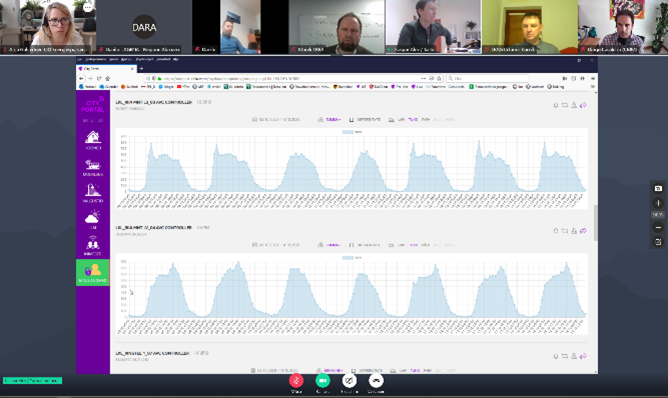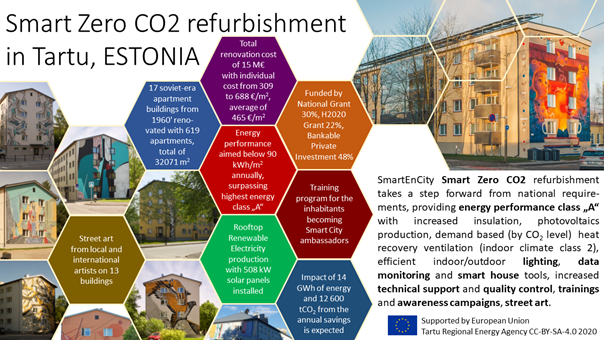Author: Anja Gahleitner (Facilitator Prospect)
The H2020 PROSPECT project aims to help local decision makers implement sustainable energy projects. The project offers a peer-to-peer learning programme for municipalities that focuses on exchanging experience and mutual learning on how sustainable energy projects can be financed and implemented.
The Energy Agency of Tartu, Tartu Regiooni Energiaagentuur, is sharing its expertise on smart blending of financing measures for private and public buildings and transport with the Energy Agency of Teramo Province (Italy), the Local Energy Agency of Gorenjska (Slovenia) and the Municipality of Mafra (Portugal).
Due to the travel restrictions, instead of a site-visit in the region of Tartu, three online meetings were held between 7 and 15 October. Main topics of the meetings were sustainable mobility, building retrofitting and smart public services. The main objective was to deepen the mentees’ know-how on these topics.

Image: Anja Gahleitner from ESV (Upper Austria); Jaanus Tamm, City of Tartu (Estonia), Marek Muiste, Tartu Regiooni Energiaagentuur (Estonia), Danilo di Pietro, Energy Agency of Teramo Province, (Italy), Crtomir Kurnik, Local Energy Agency of Gorenjska (Slovenia), Rui Diogo Casaleiro from the Municipality of Mafra (Portugal).
During the training, Marek Muiste informed other participants about the lighthouse project SmartEnCity which started in 2017. It was the first pilot project in Estonia for integrating different technologies like energy renovation, urban transport, district heating/cooling, environmental monitoring and electromobility into one smart-city service. In the context of this project, 17 old soviet-era buildings in the centre of Tartu were fully refurbished. The project also covers energy efficiency measures such as integrating home automation, building based PV micro-production, smart street lighting, environmental monitoring, charging points for electric vehicles, energy storage using recycled batteries and a platform for data collection. Further innovation also comes from the integration of different local, national and international stakeholders, e.g. municipality, consultancies, technical experts, project management, service providers etc.
Participants benefited from sharing internal know-how (among each other and with the mentor) as well as from external inputs provided by the mentor.


